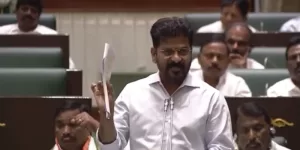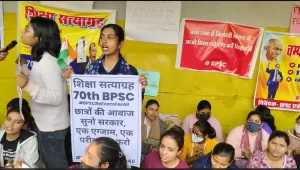On the 18th anniversary of the landmark enactment of the Right to Information Act (RTI) on Wednesday, Congress leader and MP Jairam Ramesh had said in Parliament that amendments being brought to the Act by the Narendra Modi-led government were “profoundly dangerous.”
“This (amendment) Bill is a Bill designed to kill the RTI,” said Ramesh, who was part of the drafting process of the RTI Act in 2004-05.
Later, taking to social media platform X, Ramesh said, “It [the RTI Act] was transformative till 2014 at least. After that the Modi government has continually made attempts to weaken the law, dilute its provisions, appoint the PM’s drumbeaters as its Commissioners and reject requests.”
RTI’s Impact
India’s Right to Information (RTI) Act stands as a pivotal milestone in the nation’s journey towards transparency and accountability. Enacted in 2005, the RTI Act has had a profound impact on the lives of its citizens, activists, and journalists. It’s a powerful tool that empowers individuals to demand information from the government, ushering in an era of increased openness and public scrutiny.
For the people of India, the RTI Act is a beacon of hope. It grants them the right to seek information from government authorities, pushing for transparency in the functioning of public institutions. This means that citizens can access critical data related to government policies, expenditure, and decision-making processes and hold the government accountable.
The Act mandated public authorities to respond to RTI queries within a specified time frame. Non-compliance can result in penalties for the concerned officials.
Activists and journalists have been at the forefront of the RTI movement. The Act provides them with a powerful tool to uncover hidden truths and expose corruption in the establishment.
It has enabled activists to dig deeper into issues like land rights, environmental protection, misuse of public funds and social justice, thereby catalysing social change. Journalists, armed with RTI applications, have uncovered scandals, leading to ground-breaking investigative reports.
For instance, RTI applications uncovered irregularities in the allocation of 2G spectrum licenses, leading to a major corruption scandal.
RTI inquiries also exposed corruption in the allocation of coal blocks, leading to investigations and legal actions.
Further, a 2019 RTI application revealed data on farmer suicides, shedding light on the agrarian crisis. Over 15,000 farmers died by suicide in Maharashtra in six years.
RTI Under Attack
The Right to Information Act, 2005, underwent an amendment introduced by the Prime Minister Narendra Modi-led government on July 19 this year, bypassing pre-legislative consultation. In under a week, the amendment swiftly passed through both the Lok Sabha and the Rajya Sabha, causing considerable concern.
These changes grant the Central government the power to determine the tenure and salaries of information commissioners, previously holding a status equivalent to election commissioners with a fixed five-year term.
Activists argue that within a government system heavily reliant on seniority and hierarchy, downgrading the role of information authorities could undermine the very essence of the RTI. With tenure and salary now subject to government decisions, information commissioners may find it challenging to compel public bodies to disclose information. Further, access to government records often hinges on the approval of an officer of sufficient rank.
“The initial trigger for the amendments was because RTI revelations proved extremely embarrassing for the PM himself. I had challenged some of these amendments in the Supreme Court and I am still hoping that the petition will be heard soon since RTI is fast moving onto RIP/Om Shanti status,” the Congress general secretary Jairam Ramesh said in parliament.
He said, “In essence, what the amendments do is amend the section 31 and 32 of the RTI Act.” Saying that the RTI Bill in the past was drafted and sent to a standing committee. He also implicitly jabbed the BJP saying “gone are those days” when Bills went to a standing committee for review.
He said that the original Bill drafted by the Manmohan Singh government equated Information Commissioners with secretaries of the Government of India. However, the Standing Committee said, according to a quote mentioned by Ramesh in Parliament, “The Central Information Commission is an important creation under the Act which will execute the laudable schemes of the legislation and will hold all-India responsibility for this. It should therefore be ensured that it functions with utmost independence and autonomy. The committee feels that to achieve this objective, it will be desirable to confer on the Chief Information Commissioner and Deputy Information Commissioners status of the Chief Election Commissioner and Election Commissioners, respectively.” Former President Ram Nath Kovind was part of the Standing Committee.
The timing of the amendment is not “innocent”, said Ramesh, claiming that five key cases made the Modi government bring these amendments. As one of these five, he mentioned that the CIC ordered disclosure of the PM’s educational qualifications, which is now a case being heard by the Delhi High Court. In another example, he said the Centre had announced that 4 crore bogus ration cards were being weeded out while an RTI reply revealed the actual number to be 2.3 crores.
(Courtesy: Newsclick.)




